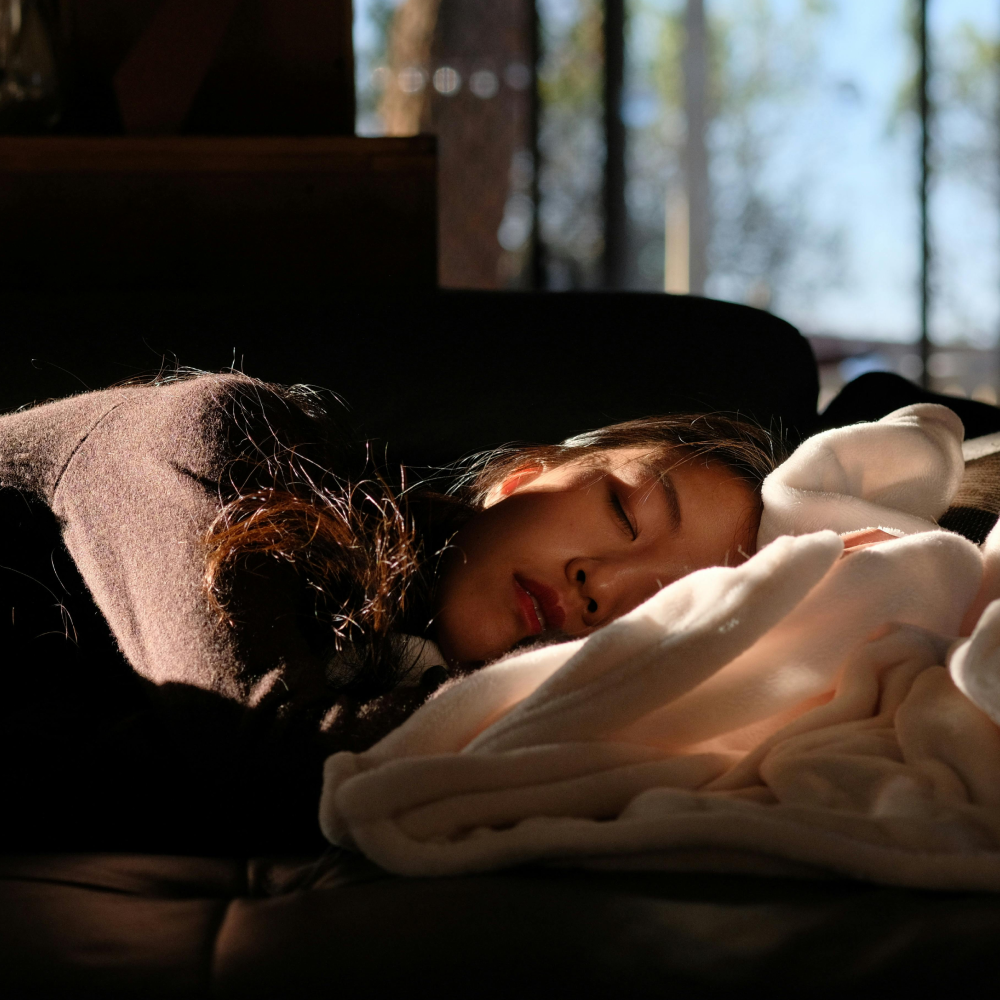
Company founders Winston and Lily Loh with daughter Irene, who has been with the company for some 20 years.
Q: How did Bedroom Affairs begin?
A: It was my parents who started the company. That was in 1979. My parents are both Singaporean and from poor families but my dad, Winston, studied at an English-medium school. Maybe that’s how he got a job with an Australian company.
When he was transferred to Hong Kong for work, it was for at least two years. So my parents got married quickly, my mother, Lily, quit her accountant job and followed him to Hong Kong.
She was about 22, 23 years old at the time. Now, when she talks about it, she sounds like she was so innocent then, not knowing anything. She was surprised by how cold Hong Kong could get. She didn’t have anything to do in those two years so she learned to cook. She also loved drawing and sewing so she studied fashion design. She spent her days sketching.
When my parents returned to Singapore, she didn’t go back to accountancy. She would pick out fabric and make 10 to 20 sets of bedsheets – it’s faster to make bedsheets. Apparel takes more time. She started by selling sheets not to department stores but to emporiums in HDB estates.
At first, my mother thought it was just a hobby. But the orders started building up and she gave up looking for a job as an accountant.
My dad was dealing in car parts at the time. He was working for Repco, an auto parts retailer in Australia. But he left to help my mum build up the business.
We were living in the east of Singapore then. She would be cutting and machining until late at night to fill the orders. But you can’t really do this in a HDB flat so we moved to a shophouse in the Outram area.
They found more tailors and that’s how the team grew to five people including my mum and dad.
We lived upstairs. I have a brother who’s five years older – we would play together. My mum was always busy but she would come upstairs to give us our lunch.
Q: How did you get involved in the business?
A: My brother and I helped out after school and on weekends: printing on plastic bags, packing sheets in PVC bags, sealing and packing them in cartons. I started helping when I was about five, doing child-friendly tasks like cleaning the bags. My brother did things like sealing the bags because you had to use a machine for that.
There was a long table where some workers would be packing products. They’d push these to the next few people, who would put them in PVC bags, then push these down to be sealed and packed in cartons.
The staff would see where my brother and I could fit in. Sometimes, we’d put things in cartons; sometimes, we’d do something else. It was never boring.
The workers doted on me. Some of them were around my mum’s age; they tried to make it fun for me.
Sometimes, my brother and I would take turns to sit on a trolley and push each other around – that was our playground.
Looking back at it now, maybe it wasn’t a normal childhood. But it seemed normal to me then – I had no complaints.
From Secondary 1 to 3, I didn’t really help out but, after my O-levels, I worked as a promoter at the Metro in Marina Square to earn pocket money.
During university, I also helped out during the summer holidays because it was so busy.
In 2004, when I was 21 years old, I was officially roped in. I was studying in Sydney and my mother came to visit me. She said: “I’m getting old – why don’t you come back and help?”
I didn’t want to go home. I knew that, if I went back, I wouldn’t return to Sydney. But I did have an interest in business.
I started from a low position, as a sales rep. People outside the company didn’t know who I was, who my parents were.
It was very stressful when I came back from Australia because I didn’t have a mentor. My parents would only say, “If you think you should do it, just go ahead and do it”.
I was given the job of building rapport with customers, with department store buyers. I learned to play golf to build rapport with clients.
I learned things not taught in school. I would buy products and study them. That’s how I also taught myself to design packaging. And I learned to manage people. It wasn’t easy (laughs). I used to be a very shy, quiet person.
So, I’ve been with the company for some 20 years. If you count the time I spent helping as a child, more than that.

A seven-year-old Irene doing her homework at the director’s desk.
Q: Which part of the business do you enjoy most?
A: Developing products – picking out fabric, deciding what to do with it, how to machine it, how to make it look elegant by, let’s say, hemming it a certain way.
Then coming up with the packaging, launching the product and seeing the response.
I really like seeing how customers respond. I love getting feedback.

The company’s cutting department in the 1990s.
Q: How has the business changed over the years?
A: The business keeps evolving. We couldn’t have survived until today if we’d kept to doing things the old way.
We used to supply a hypermarket, which has a lot of stores. It would order in volume but the profit didn’t justify the volume. We decided that we would rather focus on high-value items and on our own stores. We opened our first retail outlet in 2011, in Serangoon Garden.
Over the years, we’ve simplified the business. We now have two retail outlets. One is the original store, in Serangoon Garden; the other is our flagship store at Waterway Point in Punggol.
I don’t believe in having a lot of outlets because shopper behaviour has changed. People are now paying $300, $400 for bamboo sheets online without feeling the fabric first. Maybe it’s because they’re becoming more knowledgeable about bed linen.
People are now confident about shopping online – they want to shop online. To meet their needs, we’ve revamped our website twice in four years.
Q: The company’s called Rinco Bonington but the business is better known as Bedroom Affairs. Why this name? It sounds…sexy.
A: After working at the company for six years, I decided to start our own bed-linen stores in 2011. That was also when the business expanded its product line to include pillows, quilts and so on.
While brainstorming one day, I saw a current affairs programme on my TV and that’s when I decided to name our store, Bedroom Affairs.
Q: If you had to sum up 2023 in one word, what would it be?
A: “Rewarding”. After Covid, a lot of businesses boomed. Many retailers still face challenges – things stagnated after the boom. But we’ve changed direction and revamped our website to make it more user-friendly for online shoppers.
Q: And your hopes for 2024 in one word?
A: I hope the word will be “satisfying”, that our efforts will pay off.





